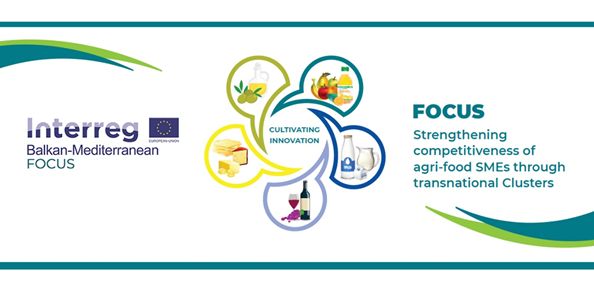The Interreg FOCUS project helped agri-food SMEs in Albania, Bulgaria, Cyprus and Greece adopt new technologies, business models and marketing strategies. This enabled them to expand and find new markets, while boosting the region’s competitiveness. The project focused its efforts on the market for traditional products and micro-producers. They received support in areas like packaging and promotion, to make their goods appeal to modern consumer preferences, tastes and needs – such as convenience.
- 10 July 2020
"The agri-food sector is the pillar of the local economies in the four project regions. Our main goal was to help agri-food SMEs in these regions enhance their innovation, operations and competitiveness, since they are the actors in the value chain who can bring real changes to the sector."
Once a clear picture of the state of the national agri-food market had been developed, four regional agri-food clusters – Balkan-Med Agri-food Clusters of Excellence – were set up. They included agri-food businesses, research institutions, technology providers, policymakers and customers.
The clusters offered the 85 participating SMEs entrepreneurial support, training and networking opportunities. Each one held two training workshops for the SMEs which are active in 13 sectors, including dairy, wine, olive oil, beverages and spirits, sweets, pasta, honey, nuts, processed meat, and herbs.
The seven project partners then conducted on-site visits to each SME to discuss their needs and assess their potential for innovation, conduct feasibility studies and help them draw up business plans. The strategies decided upon included extracting value from by-products, optimising production processes, switching to environmentally friendly packaging, finding ways to extend shelf life, boosting exports, attaining European food safety standards, installing own electricity-generating technology, and developing agro-tourism.
Wining and dining
In one case, a feasibility study on ‘Production of new, high value-added functional products’ was carried out for a Greek traditional pasta maker. This paved the way for the SME to introduce a high-protein-content, high-energy pasta aimed at athletes and others who have more specific eating habits.
In Cyprus, a viticulturist and winemaker turned to technology, putting in place climate stations and environmental sensors that are linked to an IT platform, to help prevent disease outbreaks. The company subsequently received help to participate in an Horizon 2020 research programme into viticulture and wine production that will be used to label the wines. The project started on 1 October 2020.
More competitive
Agri-food SMEs are an important part of local economies in the Balkan-Mediterranean region. Helping them to innovate and grow will contribute to the competitiveness of, and employment in, the agri-food sector and the region as a whole.
The challenges they face include consumers looking for better quality, more convenience and variety, while demanding compliance with health and food safety regulations. In addition, companies are having to switch to more sustainable production methods and use of resources in response to climate change.
Matchmaking and conference
The SMEs took part in a transnational matchmaking fair to allow them to share knowledge and encourage them to look for new opportunities beyond their current markets.
They participated in a transnational agri-food conference, held in Athens, Greece, on 10 December 2019. Topics discussed included innovation in Albania’s agri-food sector, farm and dairy management, natural herbal extracts, and innovation strategies in functional foods. The latter are defined as foods to which extra nutrients, vitamins or supplements are added to provide additional health benefits.
Lastly, an online collaboration platform was set up providing details of cluster members and information on training and funding opportunities for business ideas, product development, production processes and technological solutions.
Clusters
Through clusters, SMEs can access business support services, find international partners, identify opportunities worldwide and become more competitive. They are intended to encourage industrial cooperation and strategic connections regionally and locally, to promote innovation and growth. This is in response to the EU’s awareness that it needs to respond to competition from – and find opportunities in – developed and emerging economies.
The project's results will be incorporated into local and regional policies to facilitate research, innovation and technology transfer as part of the European Commission’s National/Regional Research and Innovation Strategies for Smart Specialisation.
Total investment and EU funding
Total investment for the project ‘FOCUS - Strengthening competitiveness of agri-food SMEs through transnational Clusters’ is EUR 902 845, with the EU’s European Regional Development Fund contributing EUR 767 491 through the “Balkan-Mediterranean Interreg” Operational Programme for the 2014-2020 programming period. The investment falls under the priority “Entrepreneurship and Innovation”.

